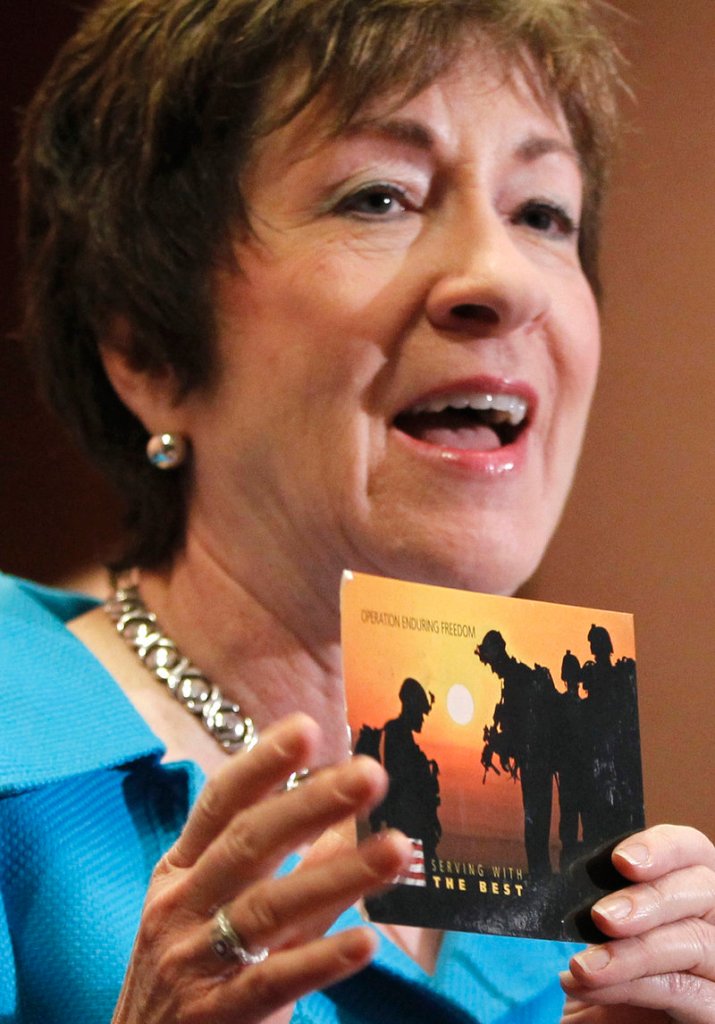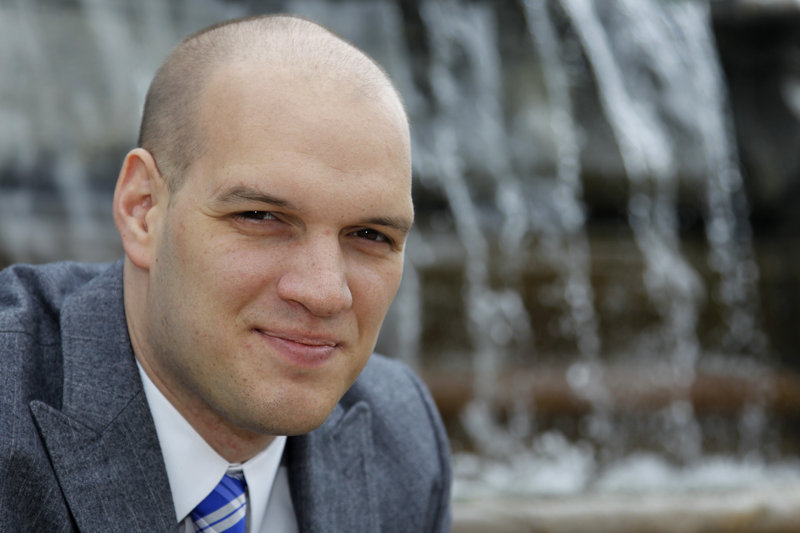WASHINGTON — Service members compelled to publicly reveal that they are gay or lesbian took advantage of the end of the “don’t ask, don’t tell” policy in several ways Tuesday, as military officials reported no noticeable increase in activity at military recruitment stations.
In one of the most dramatic declarations, a U.S. service member, purportedly serving in Germany, posted a video of himself on YouTube calling his father in Alabama to tell him for the first time that he is gay.
“Can I tell you something? Will you love me, serious?” asks the service member, who uses the moniker “areyousurprised” on Twitter and Facebook.
“Dad, I’m gay,” the service member says, his voice dropping. “I always have been, I’ve known since forever, and uh, I know I haven’t seen you in like a year, and I don’t know when’s the next time I’m going to be able to see you, I didn’t want to tell you over the phone, I wanted to tell you in person.”
The father assures the man that he still loves his son, who then smiles and says he still needs to tell his mother. The service member is heard saying in the video that he waited for more than four hours before deciding to call his father with the news.
Shortly after the military lifted its gay ban just after midnight Tuesday, a Navy lieutenant and his partner exchanged marriage vows in Vermont, taking advantage of the state’s legal recognition of same-sex couples and the Pentagon’s decision to repeal the ban, according to The Associated Press.
“I think it was a beautiful ceremony. The emotions really hit me . . . but it’s finally official,” Navy Lt. Gary Ross told the AP after his wedding.
In Washington, President Obama marked the day in a written statement, noting that “patriotic Americans in uniform will no longer have to lie about who they are in order to serve the country they love.”
“Our armed forces will no longer lose the extraordinary skills and combat experience of so many gay and lesbian service members,” Obama said. “And today, as commander in chief, I want those who were discharged under this law to know that your country deeply values your service.”
Obama’s re-election campaign sent a similar email to its supporters early Tuesday.
At Army recruiting stations, “This is not something we’re going to keep track of,” said Brian Lepley, a spokesman for the U.S. Army Recruiting Command. “The only difference is, if someone says ‘I’m an open homosexual looking to enlist,’ that’s fine. But we’ve had no reports of that.”
Taking advantage of Tuesday’s change in policy, gay activists at about a dozen military bases nationwide began distributing a free magazine by and for gay troops that includes the photographs of more than 100 service members.
In a yearbook-style layout, the photos of 101 service members are listed with their full names and ranks. Publishers said the service members agreed to have their names and faces published knowing that they would no longer face official retribution.
Provocative and personal, OutServe Magazine includes essays describing how some service members struggled daily to balance a strong devotion to their country with a deep desire to build relationships with a person of the same sex.
At age 19, Eddy Sweeney wrote, he began “a destructive life of deception, lies and evasion with myself and the government of the United States of America.”
Reminded about the gay ban while filling out his enlistment paperwork, Sweeney signed up anyway.
“I told myself that joining the military – serving my country – involved some sort of sacrifice,” Sweeney said. “Though the military did not expressly forbid gays and lesbians to join under the DADT law signed by President Clinton, one could not act of course on any of their natural desires.”
“Yes, it grabs attention and may be a little provocative at first,” said Josh Seefried – known for several years by his pseudonym, “J.D. Smith” – and the head of OutServe. “But it should prove that gay people are no different.”
The magazine first will be distributed at about a dozen Army and Air Force bases, with plans to expand to others in the coming months, Seefried said. The Pentagon, initially nervous with the magazine’s publication, has since sought copies of the magazine in advance, he said.
Despite Tuesday’s milestone, gay troops are still concerned that their partners cannot enjoy the same benefits as a traditional military spouse. And some warned that pushing the inequities into the open may create more tension among members of tightly knit units.
“I think it’s going to bother commanders, and troops who see their friends being treated differently,” Seefried said.
Air Force Gen. Raymond E. Johns Jr., commander of the Air Mobility Command at Scott Air Force Base, Ill., said he didn’t foresee any disruption to unit cohesion from lifting the ban, but acknowledged that there may be unanticipated consequences from the termination of the policy.
There will be “things that we discover that we’ll have to work our way through in order to let everybody reach their ultimate capacity,” he said. “We don’t want any glass ceilings. We don’t want anything other than for them to be able to be all that they can be as airmen.”
Johns said that he and Gen. Norton Schwartz, the Air Force chief of staff, had visited more than 100 bases since the end of “don’t ask, don’t tell” was announced and almost never heard any concerns expressed from the rank and file.
“It really hasn’t come up in any significant conversations,” Johns said. “It’s not a big deal.”
In a Facebook posting, Army Lt. Col. Michael D. Jason agreed.
” ‘Don’t Ask Don’t Tell’ repealed today,” he wrote. “The American citizen has asked some of us to fight for them. We volunteered. Now, as proclaimed by law, stay out of my soldiers’ bedrooms. About time.”
Send questions/comments to the editors.




Success. Please wait for the page to reload. If the page does not reload within 5 seconds, please refresh the page.
Enter your email and password to access comments.
Hi, to comment on stories you must . This profile is in addition to your subscription and website login.
Already have a commenting profile? .
Invalid username/password.
Please check your email to confirm and complete your registration.
Only subscribers are eligible to post comments. Please subscribe or login first for digital access. Here’s why.
Use the form below to reset your password. When you've submitted your account email, we will send an email with a reset code.